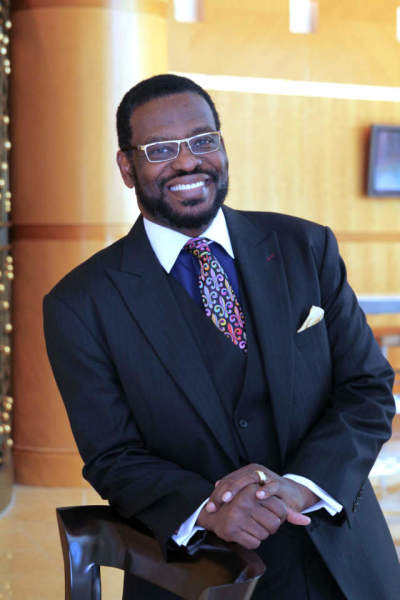Measles: The Great Disease Debate of 2015

The measles outbreak that began in Disneyland last December has infected more than 100 people in 14 states, most recently victimizing five infants at a Chicago area daycare. Last year, there were 644 cases of measles reported, by far the largest number in a decade and a half. The resurgence of a contagious and potentially deadly disease has reignited the nationwide debate over mandatory childhood vaccinations.
Worldwide, there are still hundreds of thousands of measles-related deaths each year. A decade before children began receiving the measles vaccine (given as the MMR—measles, mumps, rubella—vaccine series since 1971) in the United States; 3-4 million Americans would become infected annually. About 30 percent would experience potentially life-threatening complications. The vaccine program led to a 99 percent reduction in infections, and the disease was declared virtually eradicated in 2000.
Most authorities have blamed the outbreak on the growing number of parents who opt out of childhood vaccinations, often due to fear of complications or the preservatives used in their preparation. (Ironically, many vaccine opponents blame the outbreak on the vaccines themselves.) Opponents of uncontrolled immigration have pointed to the high rates contagious diseases among individuals crossing the southern border illegally. A press release from the CDC from May 2014 confirmed that last year's cases most likely came from abroad, explaining, "Nearly all of the measles cases this year have been associated with international travel by unvaccinated people."
Measles can live outside a host for up to two hours, on a surface or in the air. According to the CDC, "Measles is so contagious that if one person has it, 90 percent of the people close to that person who are not immune will also become infected." But in the panic over the most recent outbreak, language on both sides of the vaccine debate has become heated and in many cases counterproductive. Vaccine opponents accuse doctors and scientists of deliberately covering up vaccine complications (including a hotly debated possible link to autism) for financial gain. And some pro-vaccination advocates have viciously denounced parents who opt out of vaccines. As Dr. Brendan Nyhan pointed out in the New York Times:
Dr. James Cherry, an infectious disease specialist at U.C.L.A…labeled parents of unvaccinated children "selfish" and "dumb," while a Los Angeles Times columnist, Michael Hiltzik, called for treating "the anti-vaccination crowd" as "public enemies." If we've learned anything in politics over the last few decades, it's that this kind of language is likely to be polarizing, driving people away rather than persuading them.
And measles is not the only contagious deadly disease on the rise recently. Last month, 7 children and 1 adult tested positive for tuberculosis in Vermont. As of this writing, students at Florin High School in Sacramento, California, Plant High School in Tampa, Florida, the University of Detroit law school, and Kennesaw State University in Georgia are also being screened for the disease after an individual from each institution tested positive. Tuberculosis is spread through the air, and although a vaccine exists, it is not always effective. Tuberculosis too was once considered eradicated in the United States, although it continues to infect and kill millions worldwide.
Deadly infectious diseases understandably stir up fear, and such fear provokes all kinds of irrational and unhelpful responses including polarizing language. This makes it exceptionally difficult to persuade people to change their minds. A large study published by Pediatrics (the official journal of the American Academy of Pediatrics) tested the effectiveness of four different fact-based messages about vaccine safety, effectiveness and importance. The messages included written information and images of children with disease prevented by the MMR vaccine.
According to the study, "None of the interventions increased parental intent to vaccinate a future child. Refuting claims of an MMR/autism link successfully reduced misperceptions that vaccines cause autism but nonetheless decreased intent to vaccinate among parents who had the least favorable vaccine attitudes. In addition, images of sick children increased expressed belief in a vaccine/autism link and a dramatic narrative about an infant in danger increased self-reported belief in serious vaccine side effects."
Perhaps showing fearful parents scary images of infected children only increased their fear and thus their irrational response to the decision to vaccinate. Some doctors, however, have had success persuading hesitant parents to change their minds. Dr. Bob Sears, a pediatrician in Capistrano Beach, California, strongly advocates the use of childhood vaccinations but always treats hesitant parents respectfully. He told NPR that since the measles outbreak, some reluctant parents have been persuaded to move forward with vaccinating their children.
The relatively safe public health environment we take for granted in our country is the exception not the norm both in the world and throughout human history. We must maintain this privilege with both vigilance and respect for those who see the threat differently than we do.



























